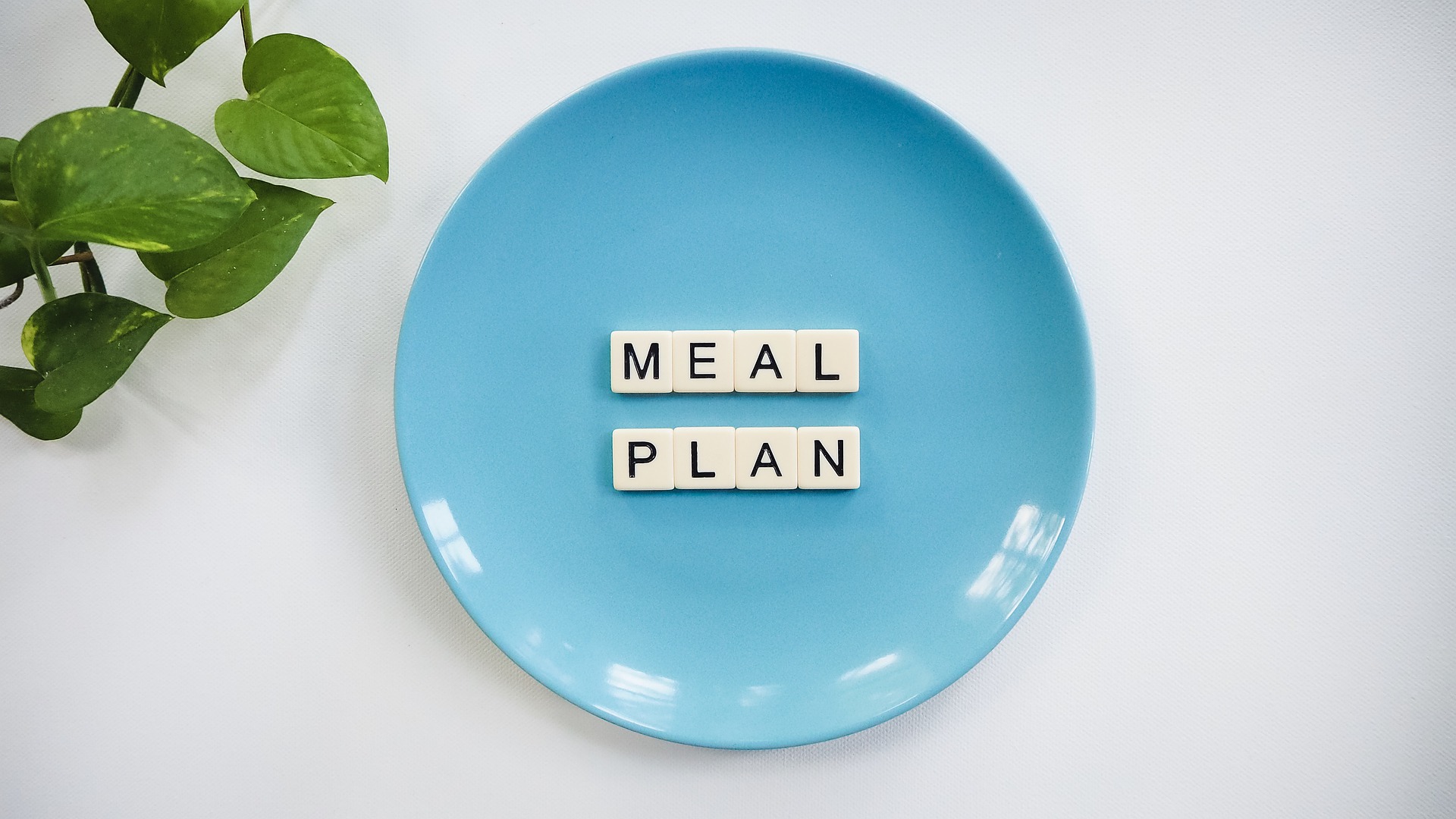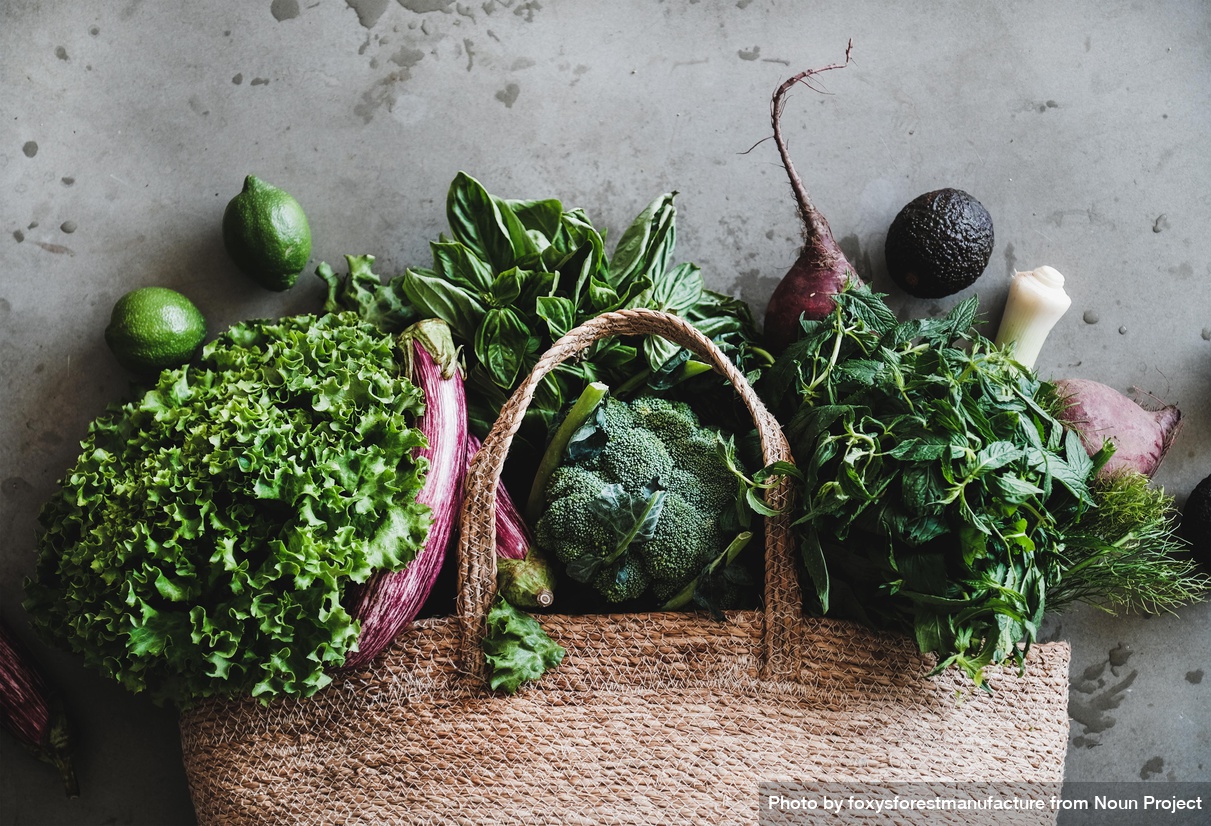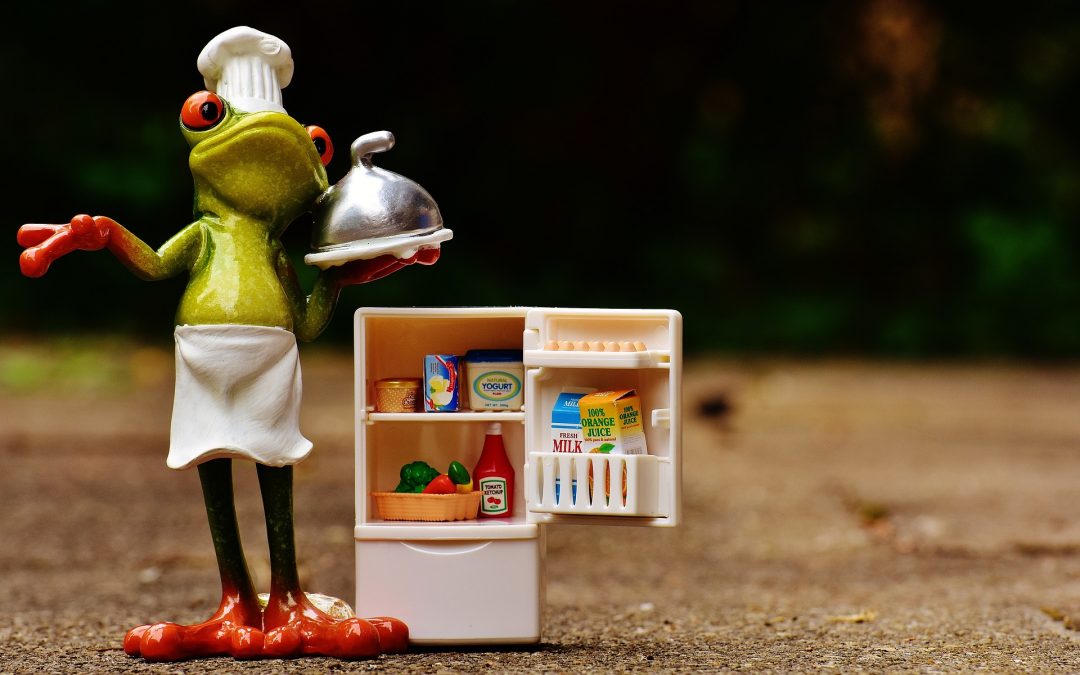I did a pantry challenge in January, and I want to share what I learned with you. There is ONE habit that everybody can do that will save them a lot of money and reduce their food waste dramatically. When I was thinking about what would be most helpful to share with you from my pantry challenge, I thought of so many possible lessons:
- Don’t buy food your family doesn’t like
- Compost
- Serve kids small portions, they can always have seconds
- Get creative with leftovers
- Eat up food that’s going bad, first
- Make meat stretch
- And more!
These are great tips, but none of them applies to everybody.
The good news is that I have one strategy, that everybody can do regardless of family size, budget, food restrictions and preferences, or physical ability.
You’re dying of suspense, aren’t you?
That strategy is…

I know, it’s not a ‘hack’. You have to keep doing it over and over again. But the process is straightforward, and the more you do it, the more it becomes second nature. Doing a pantry challenge really sharpened my meal planning senses: it’s a great way to “level up” if you’ve already tried meal planning, or get started if you’re new.
Here’s how meal planning benefitted me for this pantry challenge:
- Cut my family’s monthly budget by over 75% (we had a lot of food in the house: your mileage may vary here, but I guarantee you’ll save money)
- Saved me time at dinnertime because I always knew what I was cooking and had taken anything necessary out to thaw the night before
- Reduced my food waste because I had plans for everything I bought
- Saved me time in the grocery store since I was buying fewer things and didn’t have budget for impulse buys
- Helped me try some new recipes for cooking and baking (something I enjoy)
- Taught me what foods I and my family actually enjoy cooking and eating! (surprisingly: not a lot of pasta)
If you’d like to do a pantry challenge, check out my how-to blog here. There’s plenty of folks who have done pantry challenges and blogged about them, and I found reading their different stories and ideas really helpful to keep me motivated. Basically, you can set up the challenge rules to work for you, but the two goals are to 1) eat based on what you have in the house to use stuff up; and 2) restrict your weekly/monthly grocery budget to less than usual (50% is a common goal; you may prefer to aim for more or less than that).

Here’s How to Meal Plan:
- Know what you have in the house. Check the fridge. Make sure you list out anything that’s about to expire or rot – this will go into meals for the first few days of your plan. Consider taking a full inventory of your food, especially frozen and shelf-stable items, if you haven’t already.
- Create meals that use as many of the items in your house as possible, with as few additional ingredients as possible. Missing something? Consider if you can substitute something else or leave it out (but don’t substitute baking soda for baking powder in biscuits. It’s really gross. Ask me how I know…). If this feels difficult to do, try picking 1-2 ingredients and searching on a place like AllRecipes.com for inspiration of what you can make with those. Try to keep additional ingredients you need to purchase minimal, or items you’ll use up in one go.
- Create a grocery list that contains ONLY the extras you need to complete your meal plan (plus anything else you know you use all the time and can’t substitute with what you already have, such as milk, bread, or eggs). Shop from the list. Resist the temptation to buy something on a great sale or try a new tasty looking food – you can do that after the challenge is over.
- Follow through! You need to actually make the stuff you planned to make. If you dislike the idea of having to eat a specific thing on a specific night, try making a list for the week and picking from it each day.
A few more tips:
- Don’t forget to plan for leftovers, if any of the meals you make seem likely to produce more than you can eat in one go. Leftovers make your life easier and save you from cooking constantly. Don’t like them? Make sure you’re reheating them properly (the microwave rarely produces desirable results), or consider re-making them (try the Netflix show “Greatest Leftovers Ever” for inspiration!).
- Make sure to check your calendar for any days that may be busy, and plan accordingly: add some easy or quick options to your meal plan so you don’t get stuck! Busy days are a great day for leftovers. Or, plan a couple meals in the week to make double of and freeze, then pull them out for a cheap easy “TV dinner” when you’re busy.
- If you have a subscription to a CSA (community supported agriculture) box (like our friends at LINK fireweed co-op offer!) or shop at local food stores or farmer’s markets, you can still meal plan! With less control over your food coming in, an “ideas” list may be an easier route. With a CSA, wait until you get your box and then plan for the rest of the week.
- Do you struggle with meal planning for a whole week? Try doing just a few days at a time! Some people plan three days, others plan an entire month at a go: it all helps you use your food well.
Remember, meal planning works whether you’re focusing on traditional country foods, perogies and kielbasa, or biryani and samosas! The process is what matters, not the content.
Do you meal plan? What works best for you? Has it helped you reduce your food waste? Let us know in the comments!




Recent Comments